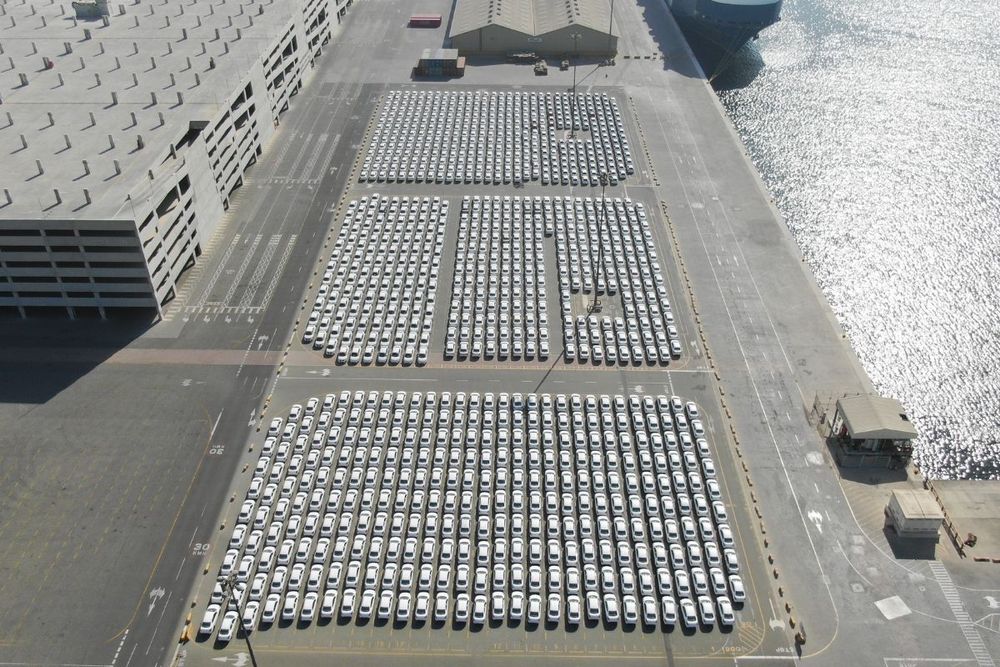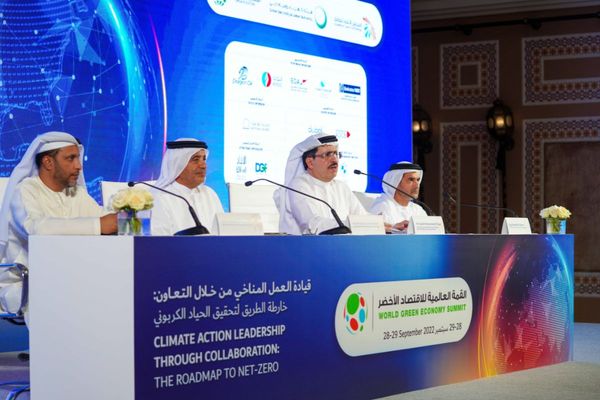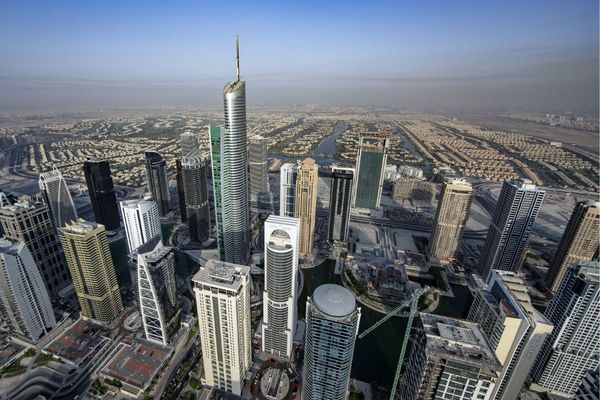Dubai hosts the region’s biggest automotive trading hub and the largest used car market should come as no surprise. Dubai’s strategic location as a gateway between Europe, Asia and Africa, coupled with its unique logistics infrastructure has ensured the steady rise of the automotive sector in the emirate.
Jebel Ali Free Zone (Jafza) a leading trade and logistics hub in the Middle East, part of DP World Group, facilitated over 1.2 million metric tonnes (MT) from Dubai’s total volume of around 4.8 million MT of vehicle & transport commodities transited through the emirate in 2021. This equates to USD12.4 billion, more than a third of the total trade worth USD31.3 billion.
Enabling The Rise of The Auto Industry
Jafza has been a significant contributor to the automotive industry’s progress in the country. Its unique logistics infrastructure and global trade network, in specific have ensured the steady rise of the automotive sector, connecting African, Asian and Middle Eastern traders to consumers across the world.
With companies from 70 countries and a workforce of nearly 8,000, Jafza’s infrastructure and trade volumes are an attraction for industry giants such as Ford, General Motors, Honda, Hyundai, Nissan, Mitsubishi, Volkswagen and Volvo. The free zone’s multimodal ecosystem connects traders with more than 260 airports via Al Maktoum International Airport and over 150 ports with direct services to Jebel Ali Port. It also gives them access to the GCC road network and the Etihad Rail that will commence operations in 2023 and has the Jebel Ali Rail Terminal among the first stations in its network.
Additionally, smart trading solutions and benefits such as 0 per cent VAT and corporate tax help businesses operate efficiently as international distribution centres.
Integrated Automotive Logistics
While the Jebel Ali Port is integral to automotive trade in general, it is a steady contributor to the export and import of used cars. Thus, reinforcing Dubai’s status as a major export hub for used cars in the UAE and the MENA region. Due to a consistent demand for used cars, according to a report by Ken Research, the UAE’s used car market is expected to reach AED 112 billion in revenue by 2025. As long as this demand exists, DP World, through its UAE assets will continue recording tremendous growth in the coming years for the automotive sector.
Jebel Ali Port’s state-of-the-art roll-on, roll-off (RoRo) terminal plays a pivotal role in this ongoing success. The port has RoRo berths which can handle up to 1 million car equivalent units (CEUs). It can also store up to 27,000 CEUs within its quay-side yards, including a multistorey facility, the largest in the region. Adjacent container stuffing and de-stuffing services are also significant advantages for partners.
Prior to import or export from the Port, automotive manufacturers, dealers and importers can also utilise the Pre-Delivery Inspection (PDI) facilities in Jafza for services such as light accessory fitting, vehicle storage, washing, age prevention and audio system installation.
Moreover, including third-party logistics (3PL), container services and automated customs clearance and brokerage, has created a one-stop eco-system in Jafza that caters to importers, exporters and OEM distribution.
Reinforcing International Trade
While physical infrastructure has been the foundation of Jafza’s success, it has been supported by bespoke solutions provided by DP World Logistics to optimise supply chain operations for auto traders.
These include fourth-party logistics (4PL) activities and track and trace technology to enable transparency and simplicity across logistics activities, trade financing, feedering and reverse logistics. Global automotive customers can leverage DP World’s global presence across 78 countries, including dedicated RoRo facilities in Cyprus, Romania, Germany and Dubai.
DP World’s acquisition of Syncreon in July 2021 also enables the company to deliver end-to-end solutions to cargo owners. Syncreon operates across high-growth automotive industries with services such as receipt of materials, warehousing, inventory management, kitting/sequencing for line feeding, and export packaging.
DP World’s European network comprises 12 inland terminals, strategically located in economic centres throughout Germany, Switzerland, Belgium and France. DP World also provides tri-modal connectivity between inland terminals in major European ports through 60 weekly barge services and over 100 rail connections.
Connecting Businesses Across Africa with The World
The UAE contributes 21 per cent of the automotive trade in Africa, equating to approximately 7 billion MT of cargo annually.
Africa is a continent of 54 countries and 1.4 billion people. Its diverse population is also notably young — with a median age of just 20 — and growing fast. By the end of this century, Africa could host more than four billion people. New connections within the region and to the rest of the world can help Africa take advantage of its population boom, creating a new global automotive demand centre.
Specifically, the UAE plays an indispensable role in the trade of spare parts, a time-sensitive and operationally complex logistics activity. Rapid industrialisation and accelerated urbanisation throughout the continent of Africa have ensured that today, the continent’s roads have approximately 22 million vehicles. This has led to a sharp rise in demand for spare parts materials, consequently increasing the demand for DP World’s services.
The company now provides multimodal transportation solutions that facilitate trade with Nigeria, Ghana, Egypt, Angola and Senegal. The recent acquisition of South Africa-based Imperial Logistics strengthened DP World’s intra-Africa network and range of services delivered. DP World’s world-class infrastructure such as its investment and expertise in ports in Africa, combined with Imperial’s logistics and market access platforms will enable trade along key trade lanes, also driving greater supply chain efficiencies, and enhancing value for stakeholders.









